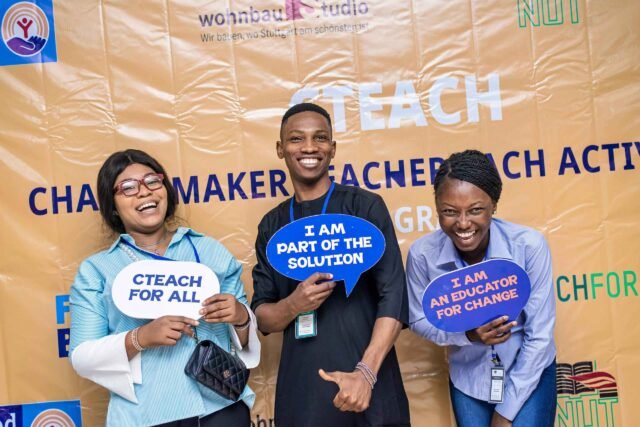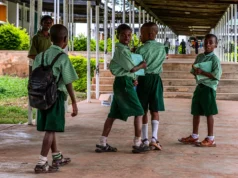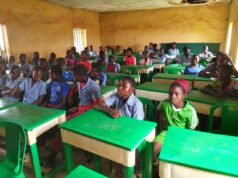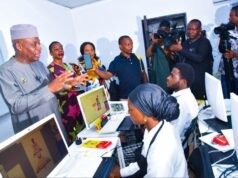In a decisive move to uplift under-resourced learning environments across Lagos State, Ashoka Africa has officially expanded its CTEACH (Changemaker Teacher Activation) network. Over the weekend, educators from six districts gathered to mark not only the graduation of 102 teachers from Cohort 2, but also the induction of 400 new educators into Cohort 3.
By focusing on teachers as change-makers, the initiative seeks to shift the education paradigm in communities traditionally underserved by quality public schooling.
Table of Contents
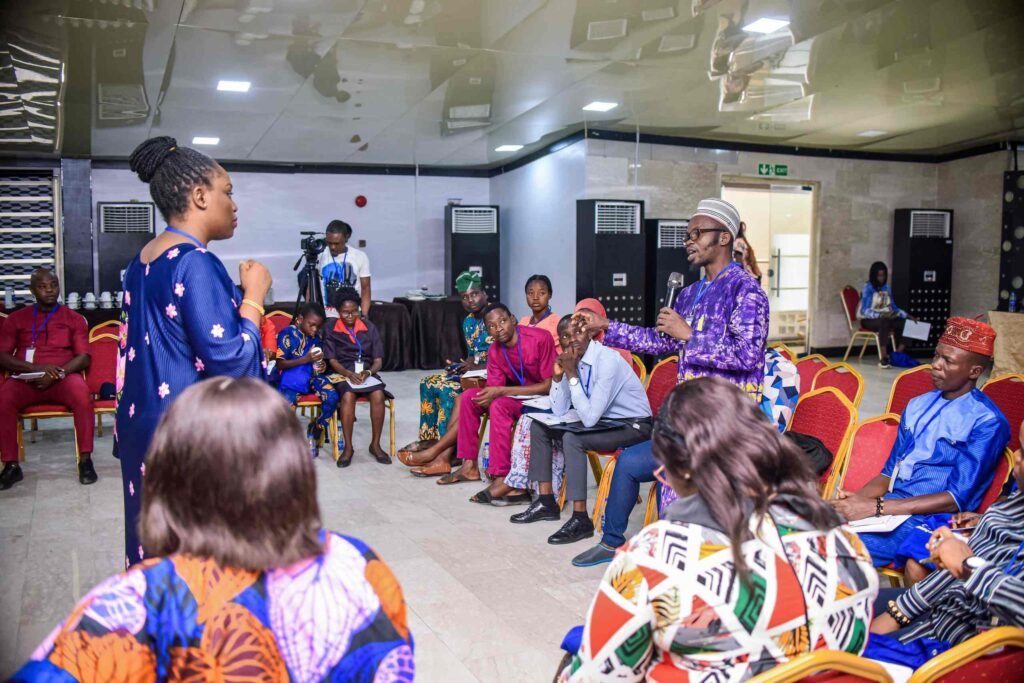
Reframing the Teacher’s Role
Launched in September 2023, the CTEACH programme emerged through a partnership between Ashoka Africa, First Book, Teach For All and generous backing from Swiss watchmaker Audemars Piguet.
At its core, the initiative conveys a bold message: that teachers are not merely transmitters of curriculum, but vital agents of change in classrooms and within their communities. Equipped with a new mindset and tools, these educators learn to instil empathy, creative leadership and collaborative problem-solving in their students.
One participant, Dr Peace Sule—winner of the 2025 African Union Continental Teachers’ Award for West Africa—credited the training for reinforcing the four foundational pillars of changemaking: empathy, shared leadership, teamwork and taking action.
Another educator, Bankole Igbekele of Ojokoro Junior High School, reflected on how the training rekindled his sense of purpose and urged the government to steer clear of politicising the new curriculum.
Angelou Ezeilo, co-President and Director of CTEACH, said Lagos is serving as the blueprint for expansion into Kenya, Senegal and South Africa.
A Milestone for Marginalised Communities
For schools located in underserved districts—where resource limitations and outdated teaching models persist—the expansion of CTEACH signals a meaningful shift. The induction of 400 new teachers means that a much wider cohort of staff across Lagos will embark on a year-long “learning journey” designed to challenge conventional pedagogical methods and empower students to take initiative.
The “Internalise, Integrate, Implement Changemaking” theme highlights how change must be deeply embedded in the individual teacher’s mindset, translated into classroom practice, and eventually spread within the broader community.
By positioning teachers as “Changemaker Makers”, the programme strives to spark a domino effect: students challenged with real-world problems, teachers facilitating meaningful inquiry, and communities witnessing tangible solutions.
In everyday terms, this may look like a mathematics teacher guiding learners to identify an issue in their neighbourhood, develop a hypothesis, collaborate in teams and propose practical solutions—rather than merely solving textbook problems.
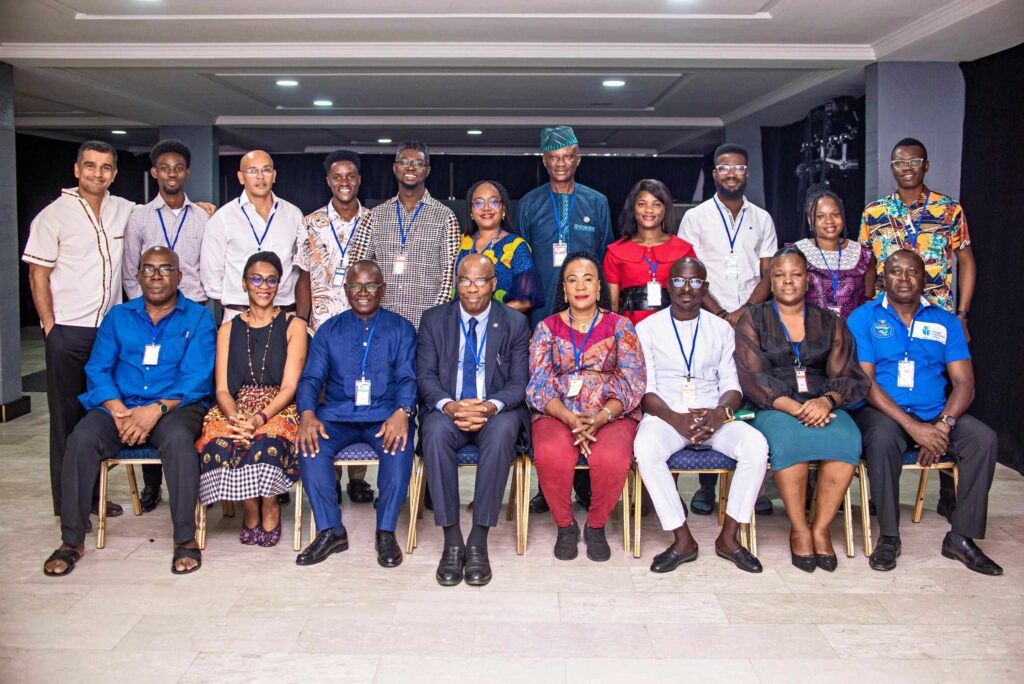
What Lies Ahead – Opportunities and Challenges
While the CTEACH expansion is a promising development, the road ahead remains complex. Scaling such programmes across a diversified education ecosystem will require sustained investment, policy alignment and systemic support. The Lagos model is promising, but its success will depend on how well this approach can be adapted to other Nigerian states and beyond.
Key opportunities include:
- Elevated student engagement: By shifting to student-led learning, classrooms become more dynamic, relevant and connected to local realities.
- Community linkages: Teachers and students engaging with local problems strengthen the relevance of education and enhance civic participation.
- Teacher professionalisation: Embedding changemaker practices raises the profile and professionalism of teaching as a vocation in underserved settings.
Yet there are challenges:
- Resource constraints: Schools in underserved communities may lack infrastructure, learning materials or even basic facilities to implement innovative practices.
- Systemic inertia: Traditional teaching models and basic assessment frameworks may not easily align with the change-oriented methodology.
- Sustainability: Passing momentum beyond the one-year programme will require ongoing mentoring, peer networks and institutional backing.
In Lagos, Ashoka’s strategy appears to take these into account—the graduation and induction ceremony itself symbolises commitment to both reflection and renewal. The presence of teachers with multiple years’ experience (such as Igbekele’s six years) also suggests the programme is attracting educators invested in long-term change. The Guardian Nigeria+1
Looking ahead, replicating this model across Nigeria and into other African contexts will demand intentional ecosystem building: partnerships with government education ministries, alignment with curriculum reforms, data-driven monitoring of outcomes and clear pathways for scaling.
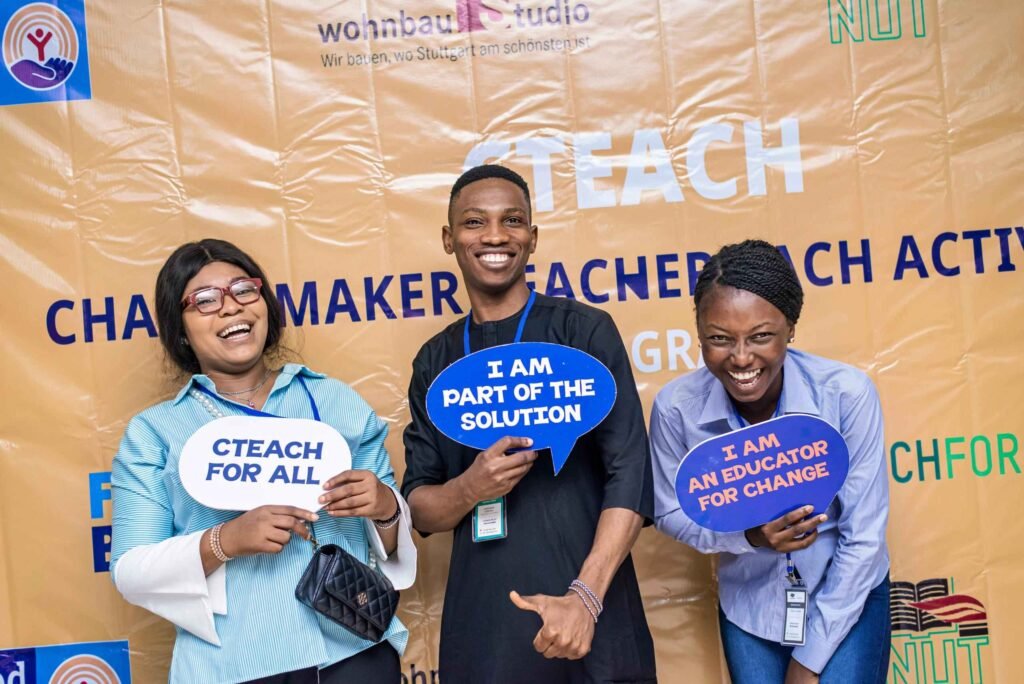
Conclusion
The expansion of the CTEACH network in Lagos marks a significant moment in the journey to empower underserved communities through education reform. By placing teachers at the heart of transformation and equipping them to nurture changemaking mindsets, Ashoka Africa and its partners are helping build a new vision for schooling—one where classrooms serve not only as spaces for knowledge transfer, but as launchpads for creativity, leadership and meaningful community action.
Join Our Social Media Channels:
WhatsApp: NaijaEyes
Facebook: NaijaEyes
Twitter: NaijaEyes
Instagram: NaijaEyes
TikTok: NaijaEyes
READ THE LATEST EDUCATION NEWS


